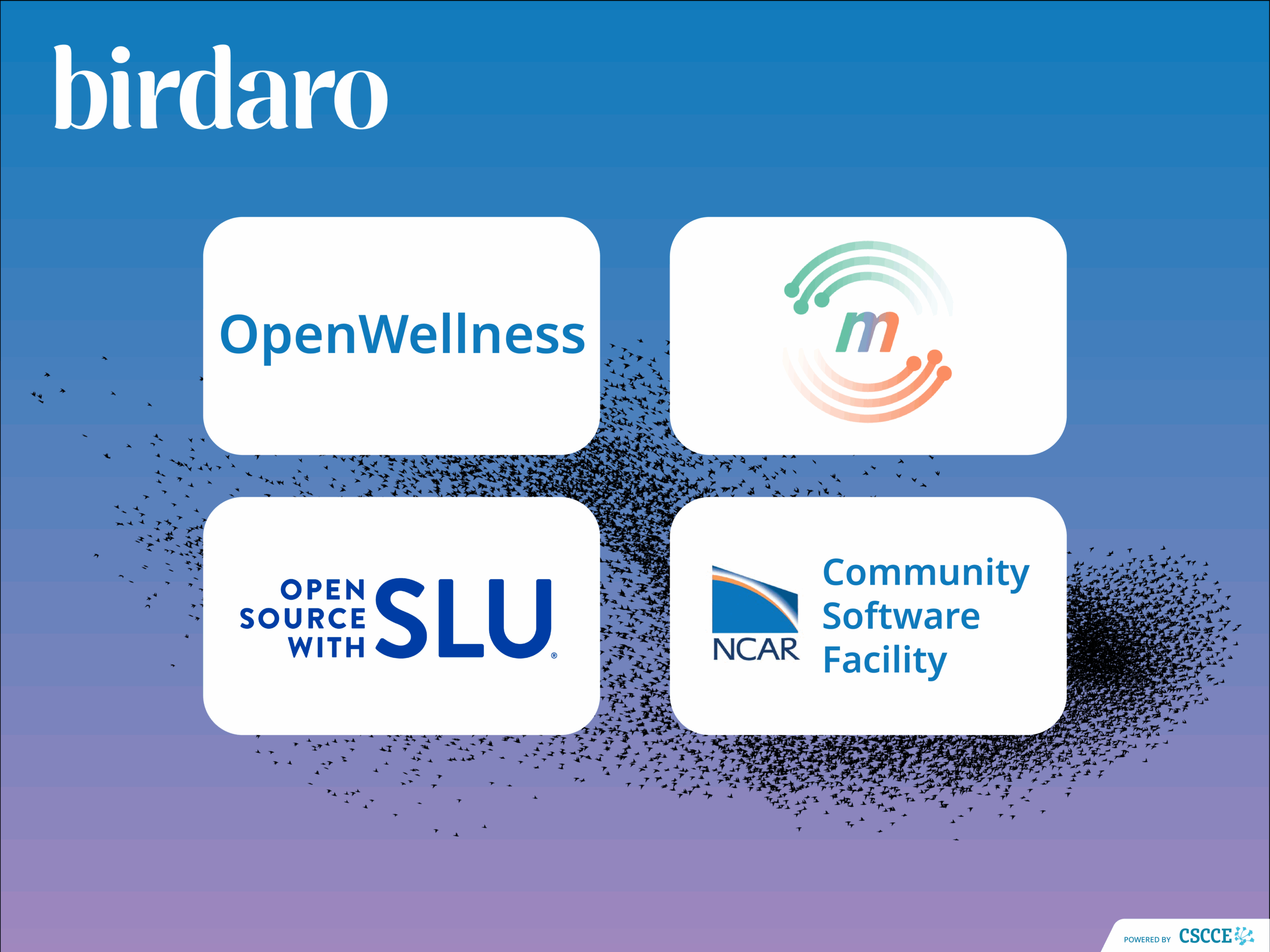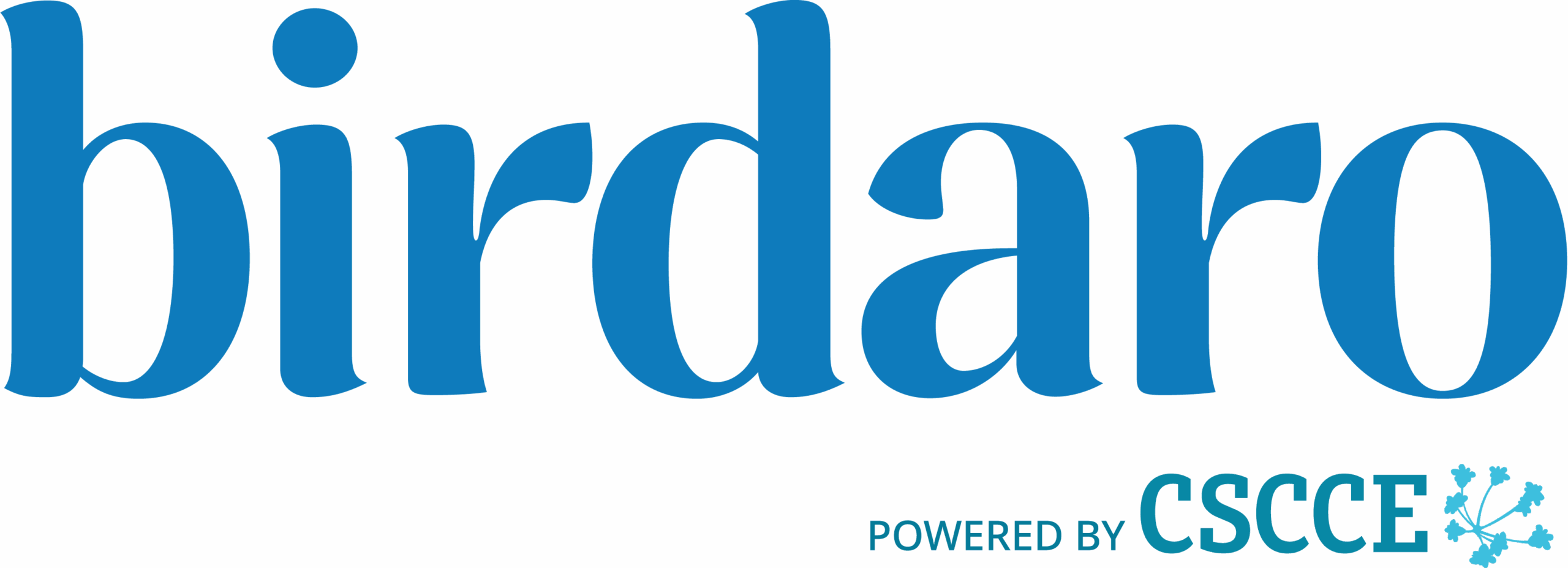Introducing the inaugural Birdaro training program cohort: Part 1
At the end of last month we launched the pilot cohort of the Birdaro training program for open-source leaders, which will run for 12 weeks until mid-December 2025.
Thanks to strong interest in the program, we have put together a cohort that represents a variety of focus areas, fiscal homes, project stages and project sizes. You can read more about how we intentionally built this cohort of participants, and used their input to iteratively shape the pilot curriculum in an earlier blog post.
In this series of five blog posts, we’re introducing you to the teams taking part in the Birdaro 2025 pilot cohort. In this post, we’re featuring several projects from research institutions, including a couple of OSPO (open-source program office) or OSPO-like projects:
- OpenWellness – a federally-funded initiative based at the University of Tennessee, Knoxville
- movement – a Wellcome and Gatsby Foundation-funded project at University College London
- Open Source with SLU – an OSPO that exists to mentor and develop open-source projects at St Louis University
- NCAR’s Community Software Facility – and OSPO-like project at the NSF National Center for Atmospheric Research
You can read more about each of these projects below, and visit this page of the Birdaro website to learn more about individual team members.

Project bios
Project bios are based on information provided by the project teams during the application and registration process.
OpenWellness
For a little over a decade, UTK scientists have built custom apps for use in more than 15 NIH and AHA funded behavioral clinical trials. They now have funding to open up their modular platform, called OpenWellness, so that other researchers can easily use and customize their own apps (native smartphone and web apps) for use in their projects. OpenWellness also integrates with many wearable devices, and is attuned to researcher needs for monitoring participants while housing data on local servers. OpenWellness is at a key transition point: taking their codebase from closed to open and ensuring that others can contribute to its upkeep and advancement.
movement
movement aims to facilitate the study of animal behaviour by providing a Python toolbox for analysing body movements across space and time. Like scikit-image for images, it offers a unified interface for reading, cleaning, visualising and analysing motion tracking data, plus methods for turning tracks into meaningful behavioural read-outs like speed profiles, head orientation angles and distances travelled. Since active development began in early 2023, movement has surpassed 45,000 downloads. Now, the challenge for movement’s project team is to engage and support a community of maintainers so that it continues to scale sustainably.
Open Source with SLU
Open Source with SLU is the open source program office (OSPO) of Saint Louis University. Staff in the office connect students with real-world software development projects while preparing workforce-ready graduates. Open Source with SLU advances open science and helps researchers increase impact. New software engineers develop solutions for clients. Through service, mentoring, and consulting, they are opening innovation with future leaders. As one of several US-based OSPOs with seed funding from the Alfred P. Sloan Foundation, the project team is looking to establish a financial sustainability model that effectively supports their ongoing operations.
Community Software Facility (NCAR)
The Community Software Facility (CSF) is a Center-level initiative to modernize how NCAR researchers develop, support, and sustain community models and tools to meet the current and future needs of staff and the broader scientific community. The CSF will ultimately bring together open source software developers from across the organization to combine expertise, reduce redundancy, focus efforts, and to ensure that the best software engineering practices are being adopted. In the early stages of existence, the CSF is considering questions of governance, sustainability, and how to design documentation that supports developers and scientists across the organization.
Additional information
- You can also explore individual participant bios, on the Birdaro website.
- You can find out more about the curriculum we’ve developed to support the pilot cohort participants’ shared interest in governance and documentation here.
Check out the other participating projects
Post 4: The R Project, RSpace, AsyncAPI, OpenRefine, and Scikit-learn
Post 5: CIB Mango Tree, MNE-Python, ArviZ, icepyx, and OpenMRS





